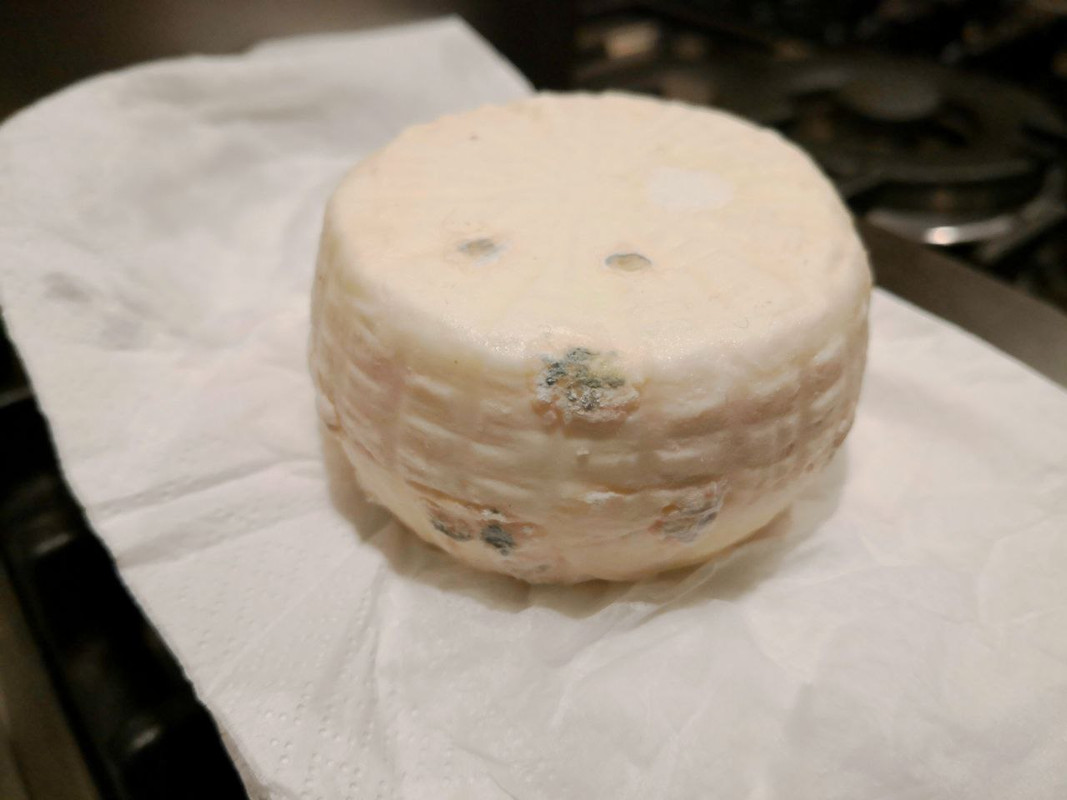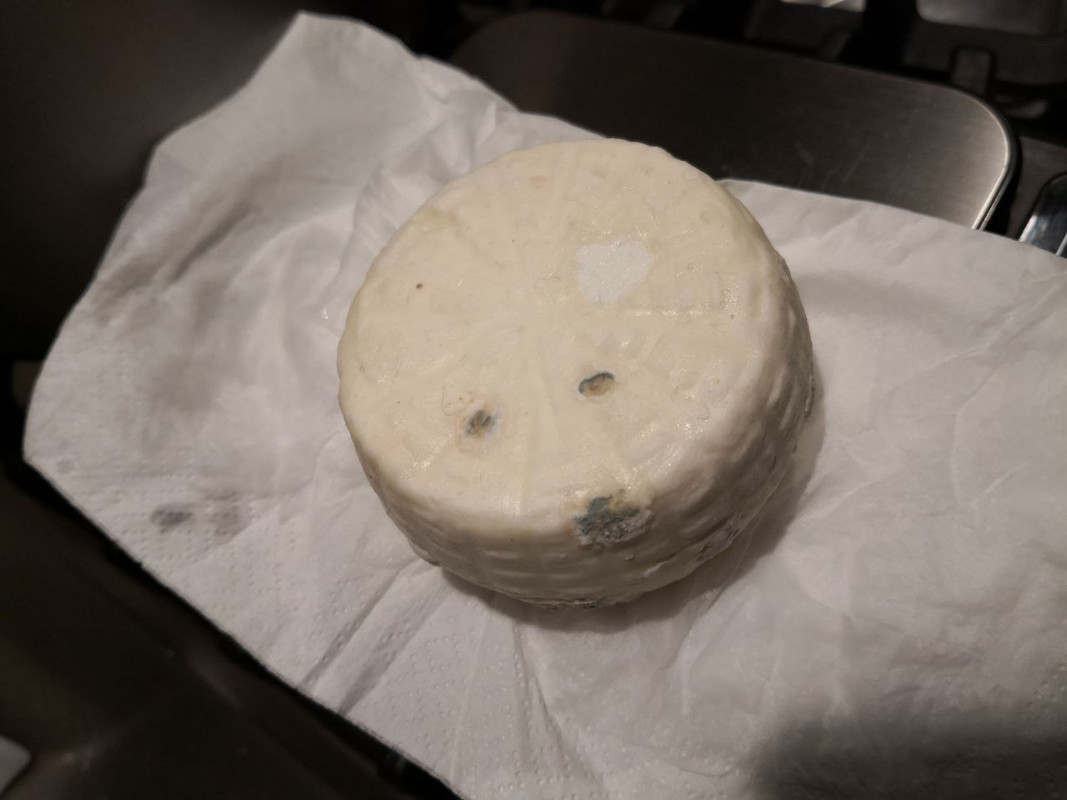This is my third attempt at making this cheese (it is called /'bris.ko.la/, like the card game), and I think I nailed it. I hope.
This is a soft cheese typical of my area.
These photos are from the fourteenth day of maturation. Some mold is noticeable, and I think the hole in the third photo is an error. Something was fermenting inside? Is it safe to eat?



The procedure was as follows.
- 961 g of milk bought 30-45 minutes before (15 minute journey in a thermal bag and then kept in the fridge)
- pasteurized at 72 °C for 20 s
- then brought to 40 °C
- added 14 g of skyr with expiry at 7 days, left to activate for 5 minutes
- inoculum of 0.31 g of 75% w/w chymosin rennet (that is 30 ml/100 l)
- maintained at 40 °C
- after 110 minutes it coagulated
- then first cut in columns of 4 cm
- waited for 20 minutes
- second cherry cut
- mix for 2 minutes
- wait for 10 minutes
- transferred to the baskets with turnings every 30 minutes, for 90 minutes. Weight 213 g.
Then 18% brine the following day at a temperature of 10.5 °C for 2 hours.
Maturation at 14.6°C and 62% (this value to be taken with a grain of salt).
Every day I dried, removed the whey, weighed, and turned the cheese upside down.
The weight curve is following the formula 0.84 - 0.06 * ln(days) in percent of initial weight.